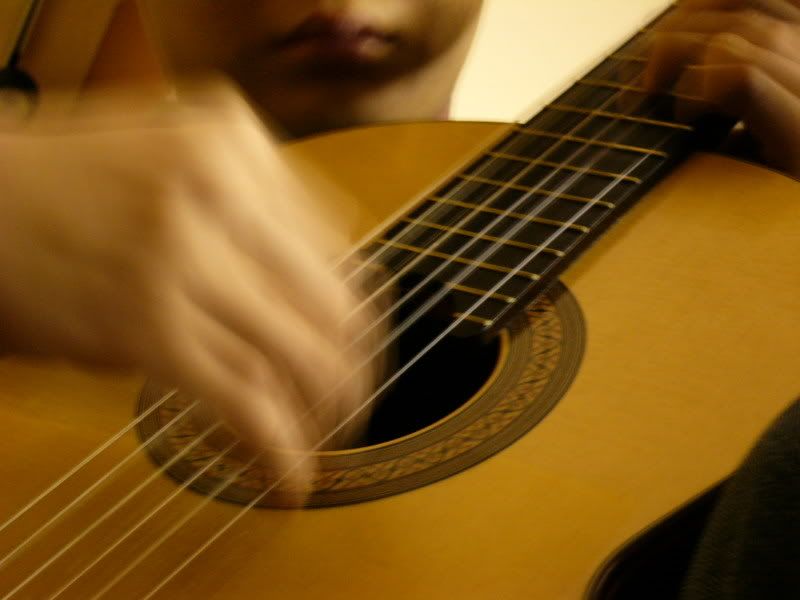A few weeks back, I was chatting online with a younger friend of mine who's still doing Form 6 in Catholic High. Wan Ru, to her credit, is one of the few friends who have ever been curious about my field of study to bombard me with questions. I knew she was very active in the the science/maths soc in CHS, so I jokingly asked her if she wanted me to give a talk about astronomy and stuff like that. To my surprise, she said that she will organise a talk by me in school. I wasn't really expecting her to say yes, since I had doubts about the level of interest that high students would have for this subject.
As the days went by, the date for the talk crystallised as she made the arrangements, but it was some time before I gotten around to actually preparing the Powerpoint presentation for it. When started making the first slides introducing myself, I had little idea of what to talk about: I had told Wan Ru that it was going to be something on 'astronomy and astrophysics and stuff like that', but I soon had the problem of having a topic that was too broad, and impossible to present in a single talk. I decided to start with a few slides talking about astronomy in antiquity, with a slide showing an Assyrian sky map and another one showing Erastothenes' calculation of Earth's circumference. As my account shifted towards Ptolemy and Copernicus, I realised that an account of the evolution of mankind's view of the universe is fascinating and should be able to keep the attention of the students. Nowadays, this subject has a name: cosmology.
The thought of giving a lecture on cosmology to a bunch of disinterested high school students is intimidating to say the least. However, as I worked on the presentation, I began to feel that it's possible to do a coherent account which should be comprehensible to high school students, especially since many of the audience would be Six Formers in science.
Today, with no small amount of trepidation, I arrived at school at around noon to prepare for the talk, which would be given at 12.30pm, during a time when both afternoon and morning sessions can come and listen (in CHS, Forms 1 and 2 study in the afternoons, while the rest are in the morning session...it's the only way everyone can fit into the classrooms; and on Friday, there's a gap between the end of the morning session and the start of the afternoon session to accommodate Friday prayers for Muslims). As the audience started filtering in while I was hooking up my laptop to the projector, it seemed that most of the students were male Six Formers, with a smattering of younger students presumably from SainsMatik (Sci/Math soc for all you non-Malay speakers).
I started my talk with a picture of my graduation class photo, to strike a rapport with the students (i.e. the fact that I was in their shoes), and talked a bit about studying physics in university and also a couple of slides about my summer in STScI (just to establish my pedigree a bit :P). I clarified the difference between astronomy and astrophysics before starting of my talk properly. Although I saw a couple of girls studying near the back while I was talking, in general, I think I managed to catch their attention fairly well, because I used lots of pictures that they probably won't see in text books...for example, in a slide about Galileo I managed to Google a couple of images of his drawings on Saturn's moons and the lunar landscape, which I could sense fascinated them. I did reckon my voice turned a bit monotonous at times, and a few times I tripped over my own words, but I think the only moment when I lost my track a bit was when I was telling them about the measured change in the fine structure constant...I wrote it out in terms of the fundamental constants was surprised that they (the 6th Formers) have not yet encountered Planck's constant and the permittivity of free space, ε0. I was pretty sure that I had encountered it before I entered university, so I floundered a bit when they all gave me blank looks. Sometimes, you lose track of what the layperson knows.
I particularly enjoyed explaining things from Edwin Hubble onwards, which I'm sure a lot of them would never have known, and it was clear they were actually paying attention to what I had to say, because I had to field a few questions, as well as the occasional comment from the loudmouths among them. It did get kind of awkward when they asked questions beyond my level, but I tried answering to the best of my knowledge.
By the time I was 16-17 I had read a lot of popular science books, but I think most of my audience have never read any, so my talk was probably a huge eye-opener for them. It was gratifying to see that they were actually fascinated by the subject, and hopefully at least a few of them will be inspired into reading more on it...even if none of them eventually end up as cosmologists.
If ever another opportunity comes up to give talks to students, I'll more than happy to do it again...
Subscribe to:
Post Comments (Atom)

No comments:
Post a Comment